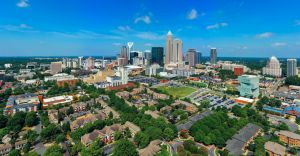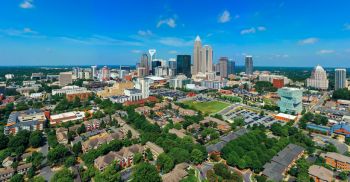
Source: pawel.gaul / Getty
For decades, Charlotte has spent millions of dollars to create and maintain affordable homes however the results reflect an increase in the shortage. An April report published by the National Low Income Housing Coalition shows that between 2019 and 2020, affordable homes available to extremely low income households in Charlotte increased by more than 7%-from 41,923 to 45,130. The report showed an estimated 67,015 extremely low income households in the Charlotte-Concord-Gastonia metro region. The US Census Bureau classifies extremely low income households as “those with incomes at or below the poverty line or 30% of the area median income.”
According to WFAE radio, the Coalition’s report confirms previous reports that “paint a worsening picture of Charlotte’s affordable housing landscape.” In October 2021, Mecklenburg County published a report that showed the number of units renting for $800 had decreased from an estimated 66,067 in 2011 to 41,114 in 2019. In November 2021, a University of North Carolina at Charlotte report showed rents increased by more than 16% during the pandemic, median home prices rose by almost 16% as well. Mecklenburg County also reported that the number of people calling 211 for housing and shelter assistance in April has spiked by more than 300 requests.
In an April interview with WFAE, Charlotte Mayor Pro Tem Julie Eiselt said that she anticipates that city council will ask voters for an additional $50 million in bonds for affordable housing in November. Eiselt said she wants the private sector to match the public’s contribution again. In 2018 and 2020, voters approved $50 million in bonds for the city’s Housing trust Fund. A contribution of $58 million for affordable housing projects were donated by the private sector in 2020. The City of Charlotte said that in the last 20 years, $210 million of the Housing trust Fund has been spent to create and preserve 10,689 affordable housing units and 888 shelter beds.
















